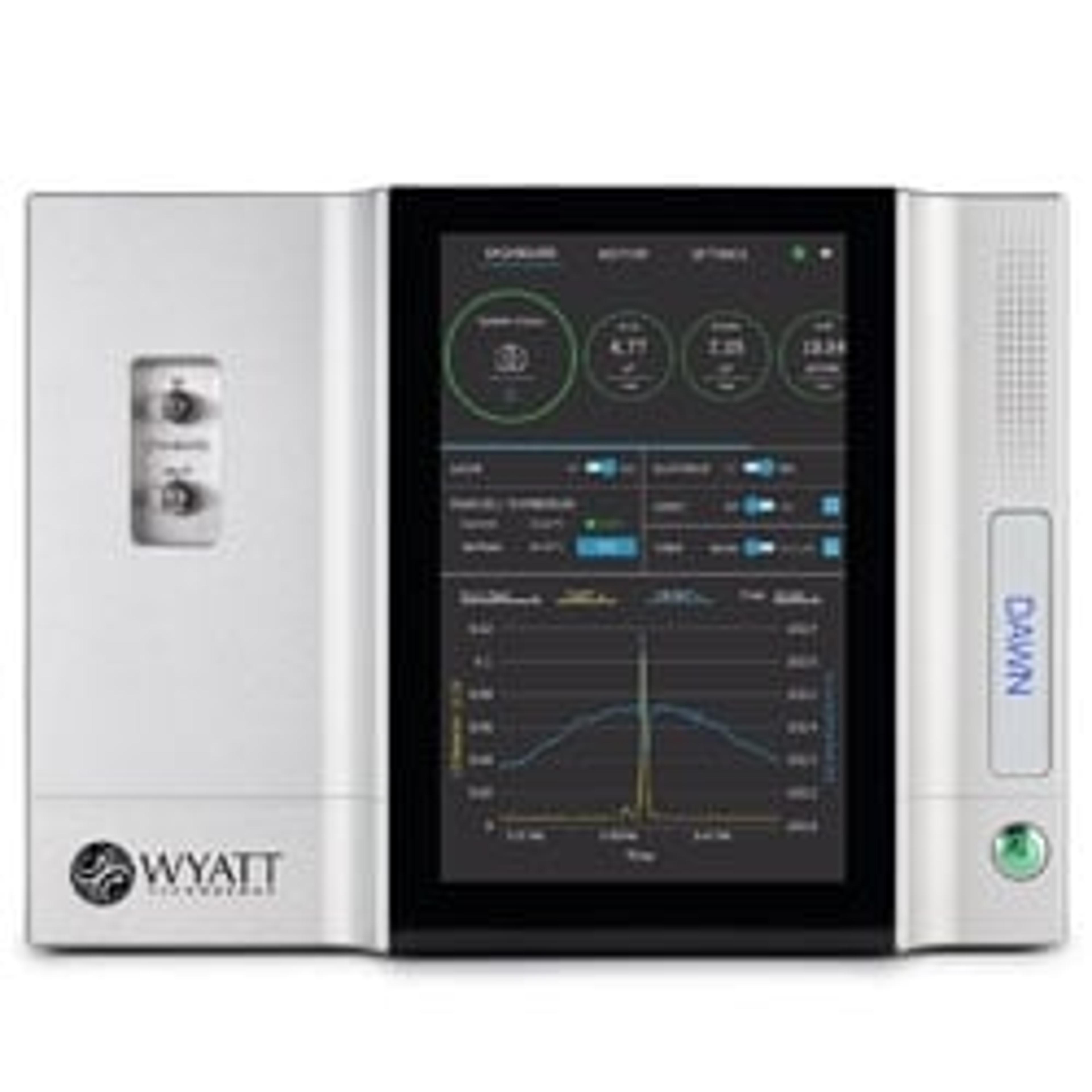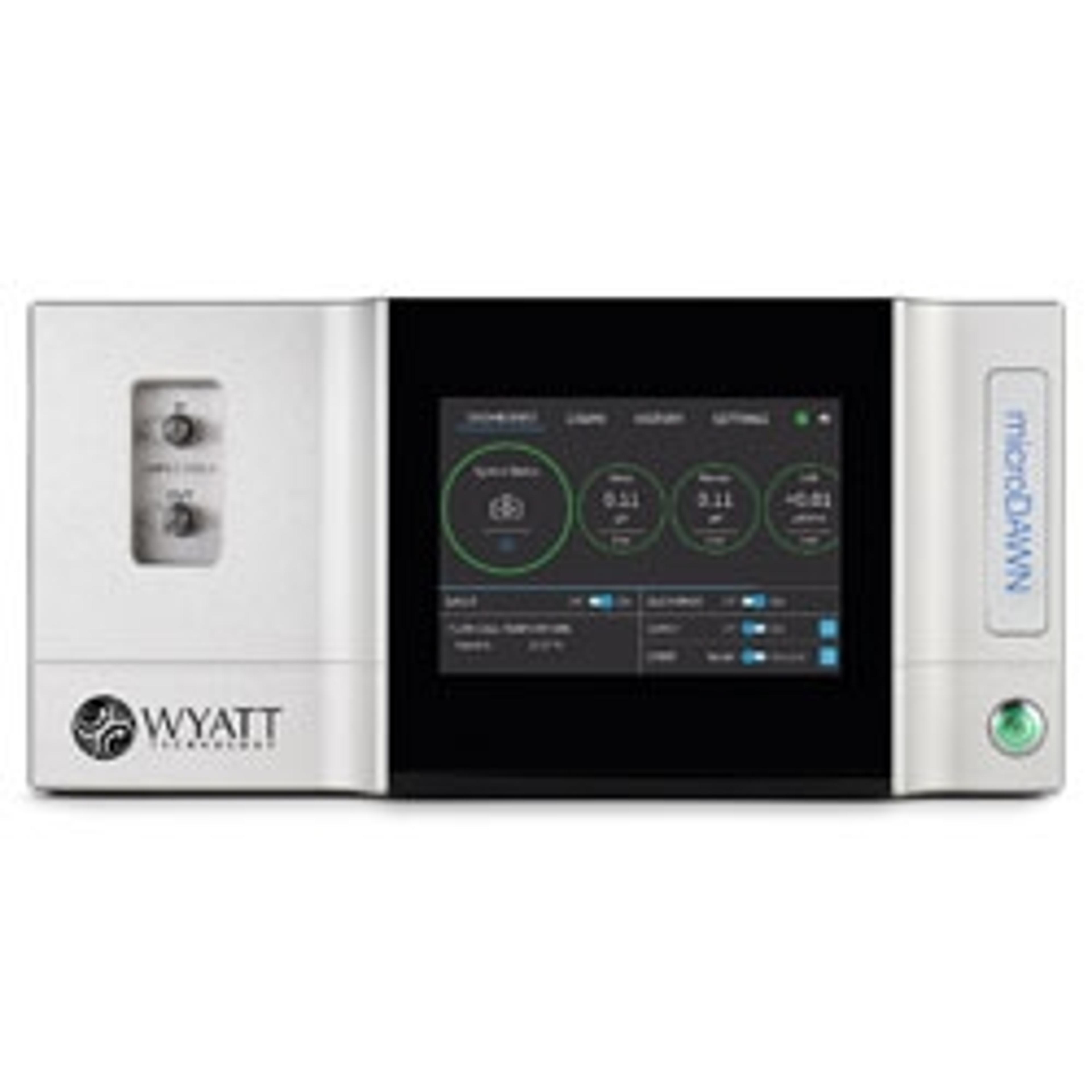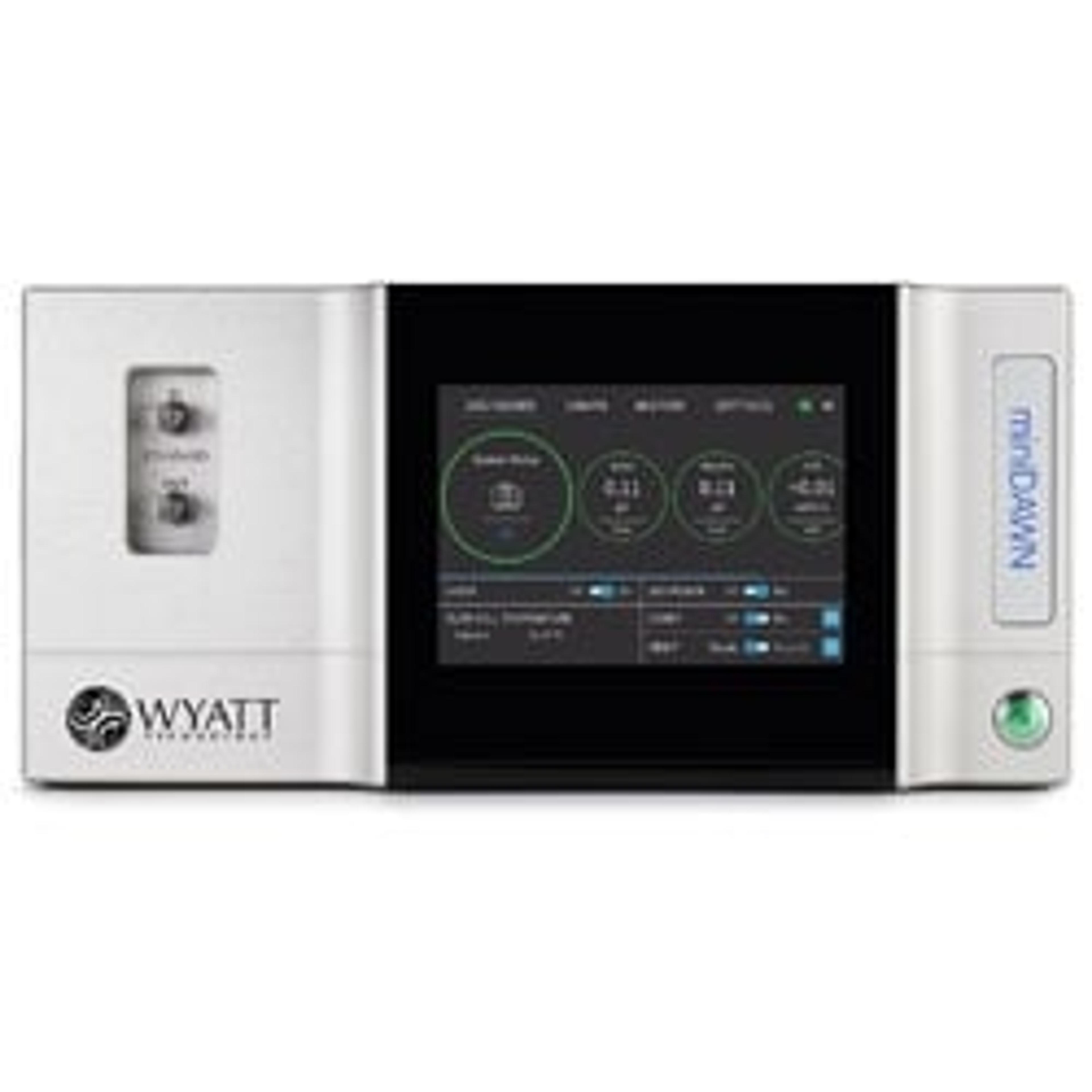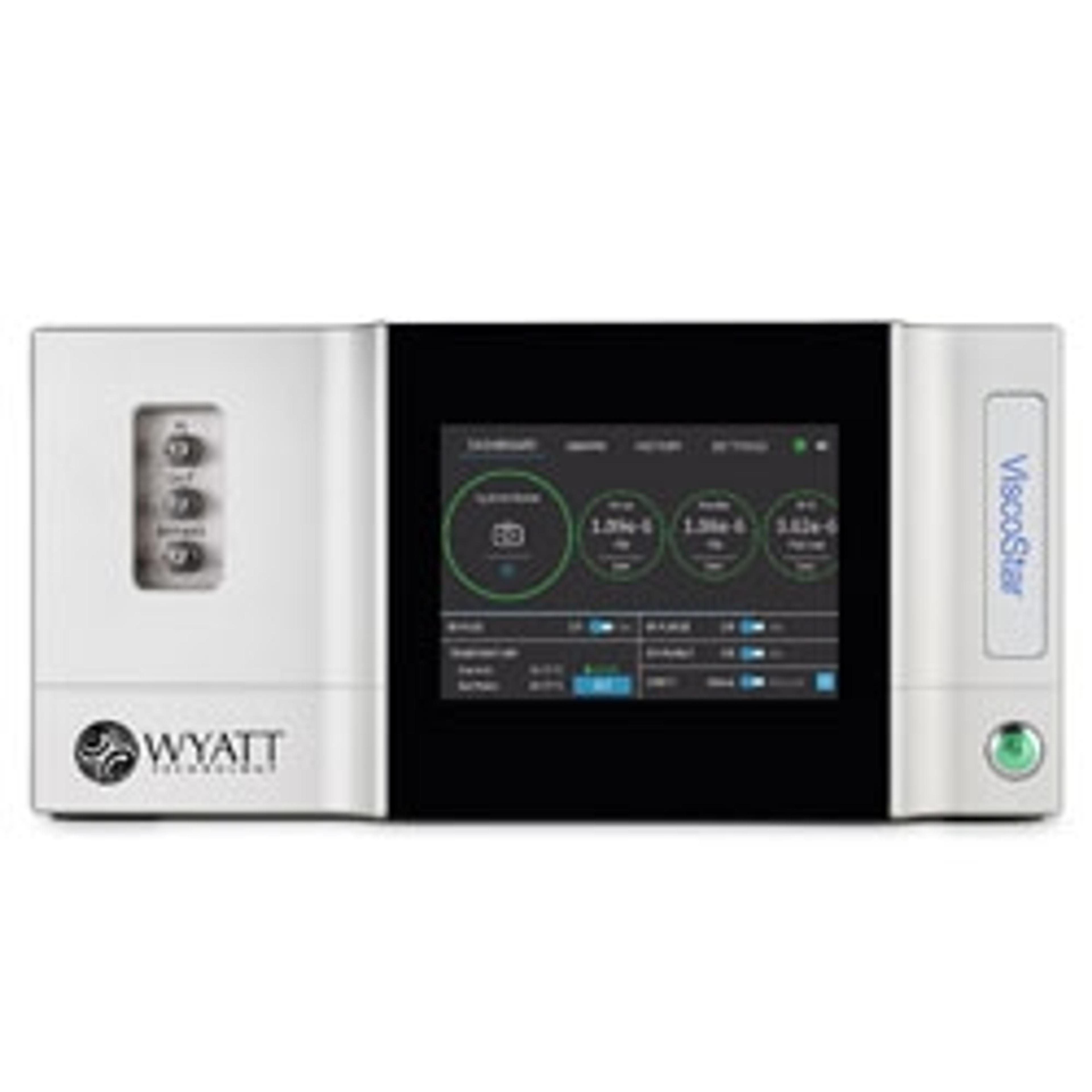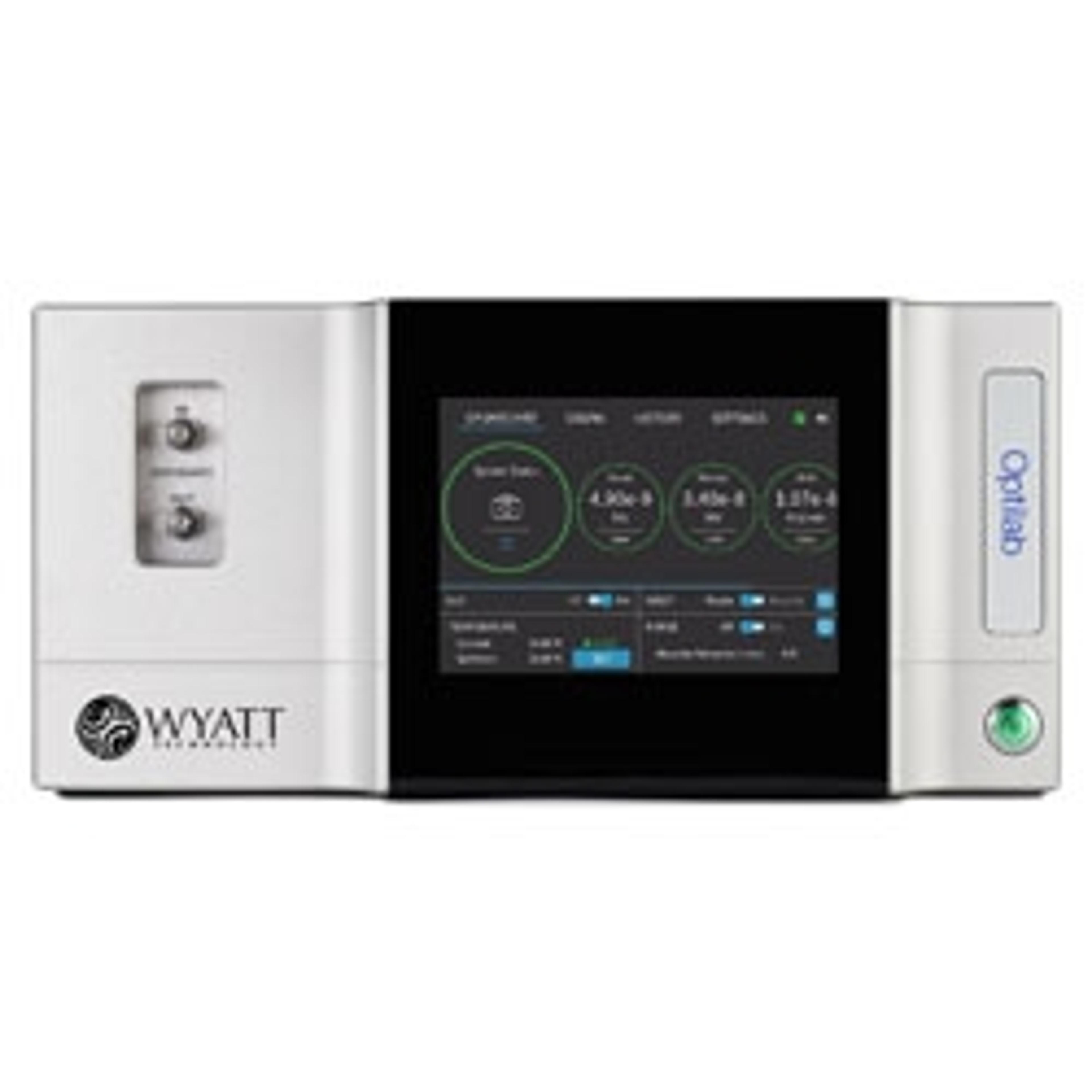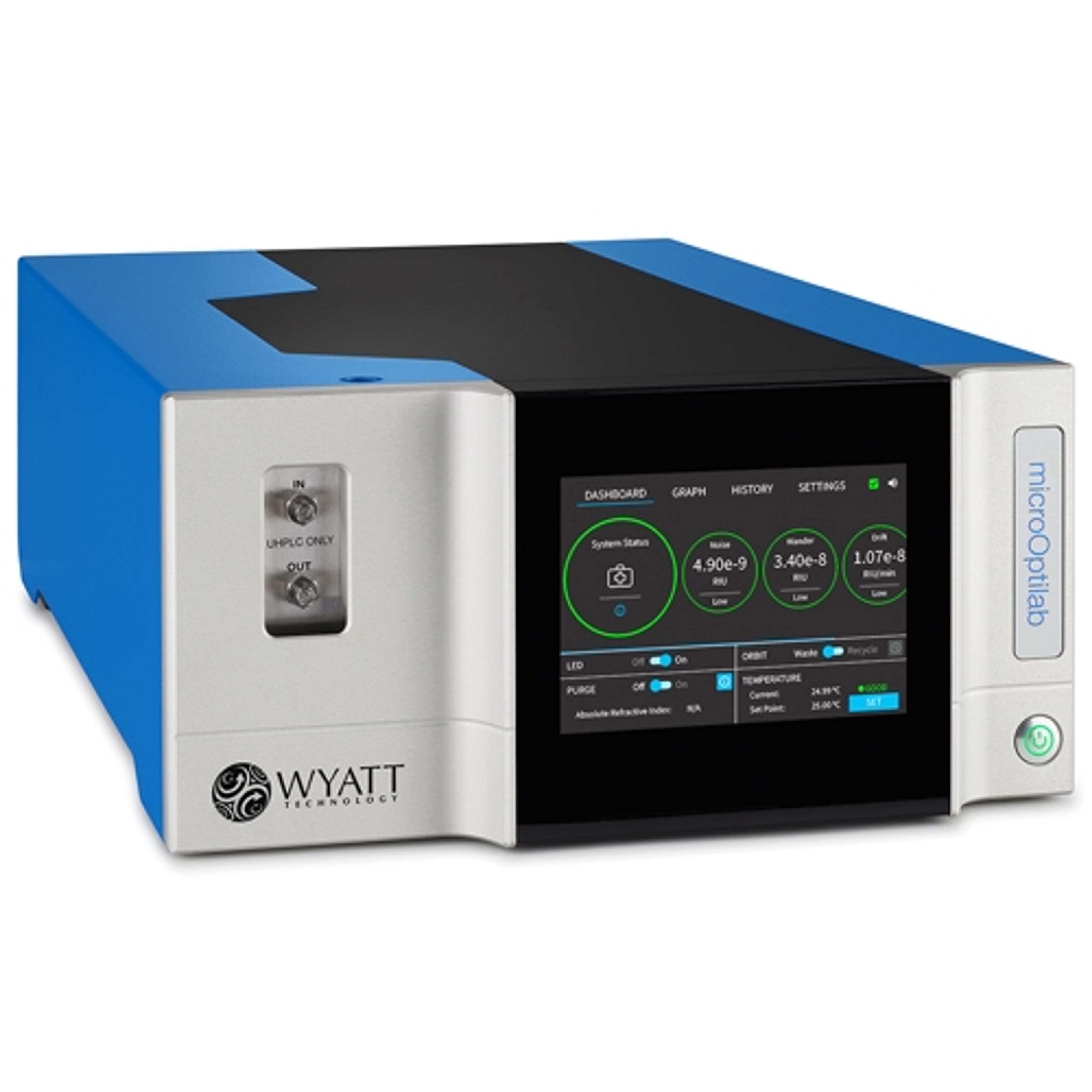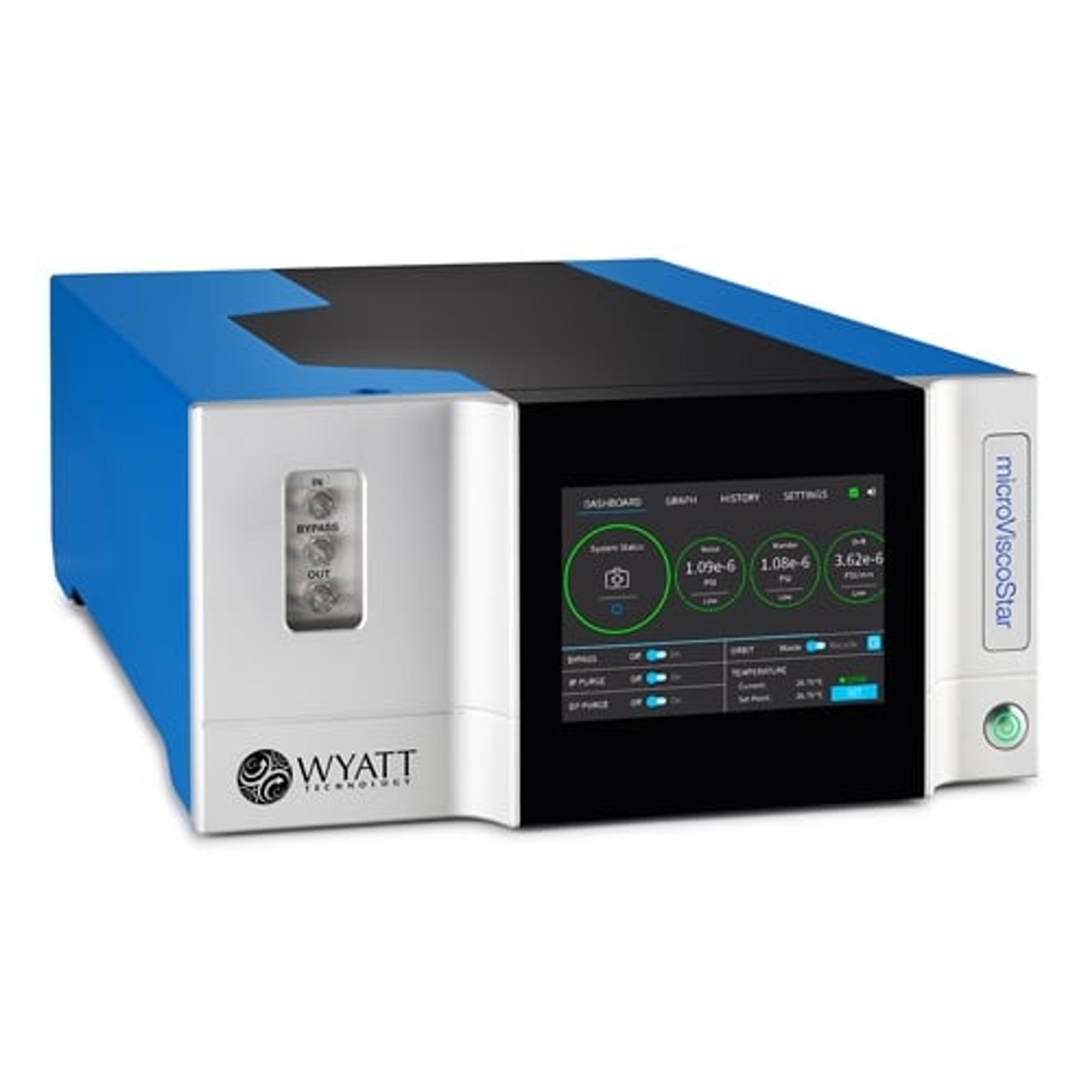Wyatt QELS™ Dynamic Light Scattering Module
The Wyatt QELS™ module adds dynamic light scattering (DLS) capabilities to a DAWN™ , mini DAWN™ or µ DAWN™ MALS detector.
Exceptional sensitivity, very reliable!
In-line dynamic light scattering detection
Having radius information on our biological samples is critical- and the QELS gives us just that. Working in conjunction with the HELEOS II and Optilab T-rEX, we measure molecular weight and hydrodynamic radius of all our biological samples efficiently and reliably. This is a must have add-on to your MALS detector!
Review Date: 20 Dec 2016 | Waters | Wyatt Technology
The microDAWN™ is the only multi-angle light scattering (MALS) detector that can be coupled to any UHPLC-SEC system without loss of resolution. UHP-SEC-MALS determines absolute molecular weight, size and conformation of polymers, peptides, and proteins directly, without resorting to column calibration or reference standards.
Features:
- Sensitivity: 3.5 ng of 100 kDa polystyrene in THF or 70 ng of BSA in PBS, loaded on a 4.6 x 150 mm UHPLC-SEC column.
- Range of molar mass: 200 Da to 10 MDa (may vary with molecular composition, size or solvent)
- Range of rms radius R g : 10 nm to 50 nm
- Range of hydrodynamic radius: 0.5 nm to 30 nm (with optional Wyatt QELS™ embedded dynamic light scattering module)
- Integrated ultrasonic flow cell cleaning module
- Software: ASTRA® chromatography software provides comprehensive analyses and user-friendly features including HPLC control, “One-click MW” and user-designed reports
- Optional 21CFR11 support for GMP
Applications:
- Proteins: absolute molar mass, size and stoichiometry of monomers, oligomers, complexes, aggregates and fragments.
- Glycoproteins, detergent-solubilized membrane proteins, PEGylated proteins, protein-polysaccharide and protein-DNA complexes; heme-containing proteins that absorb laser light
- Protein-protein and protein-nucleic acid interactions
- Polymers: absolute molar mass and size (distributions and moments), conformation, and branching
- Linear or branched polymers, co-polymers
- Most aqueous and organic solvents





